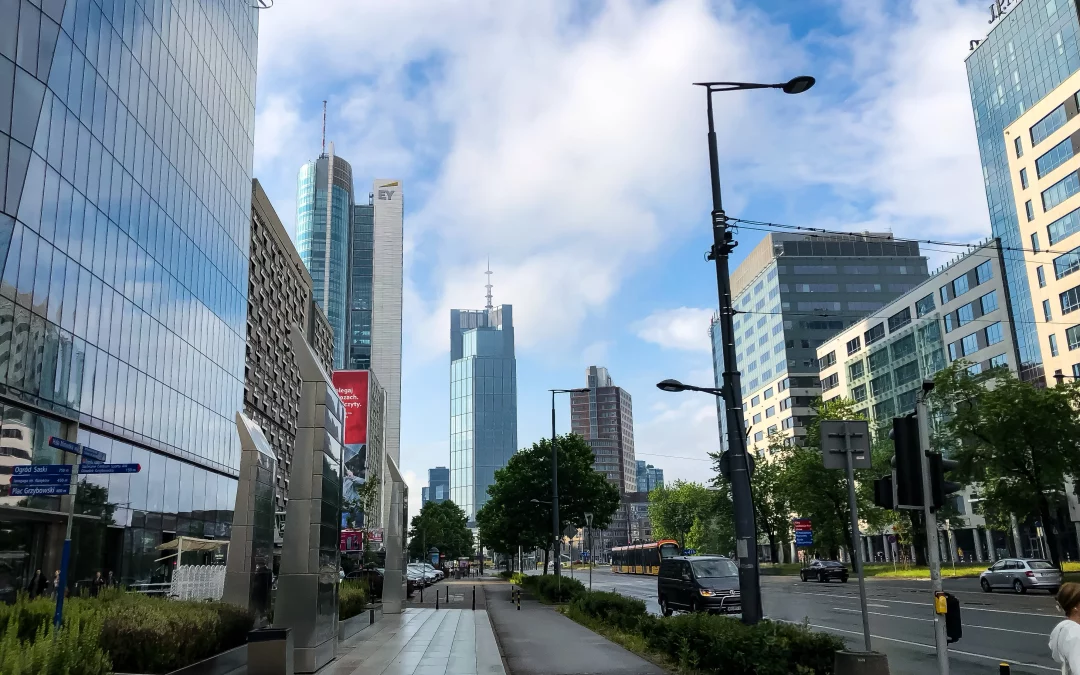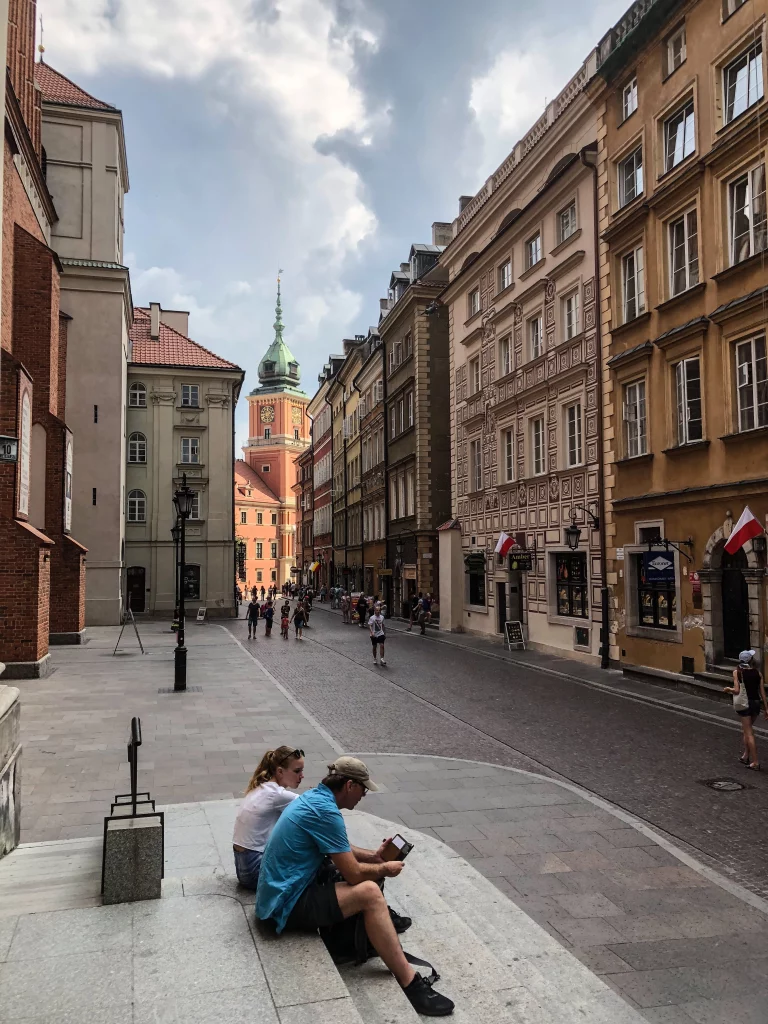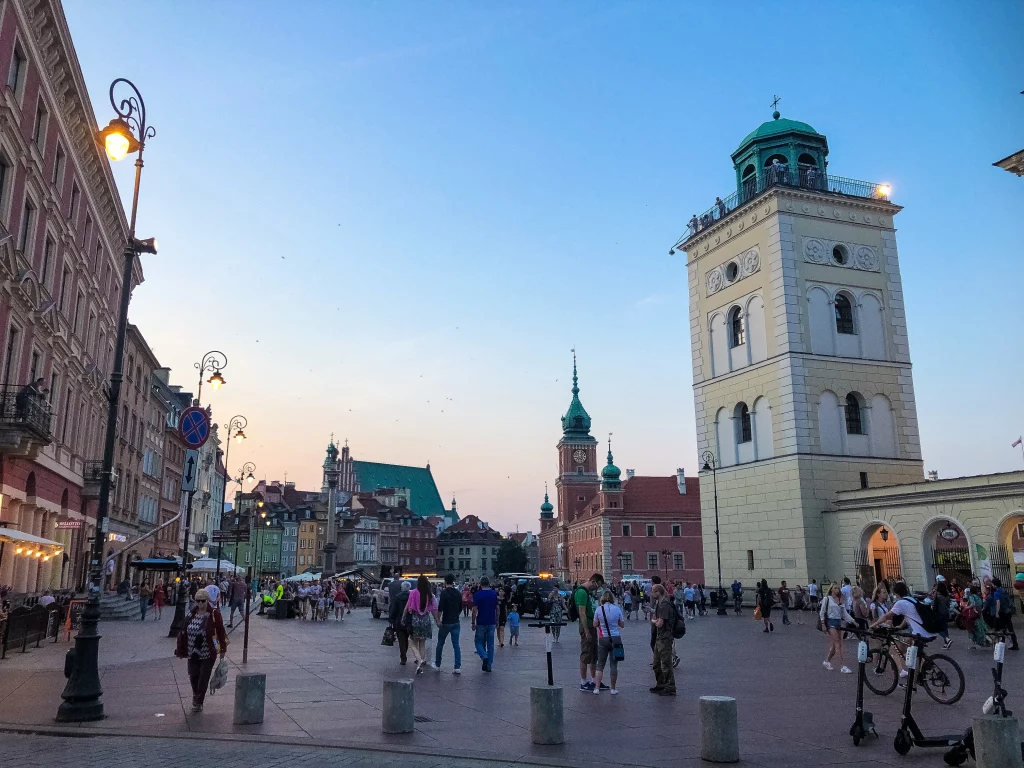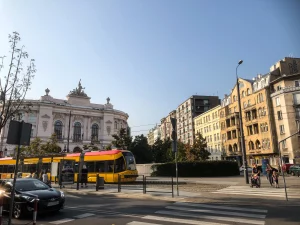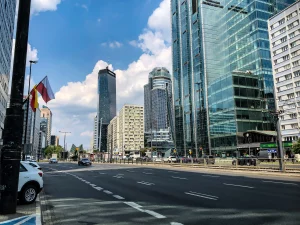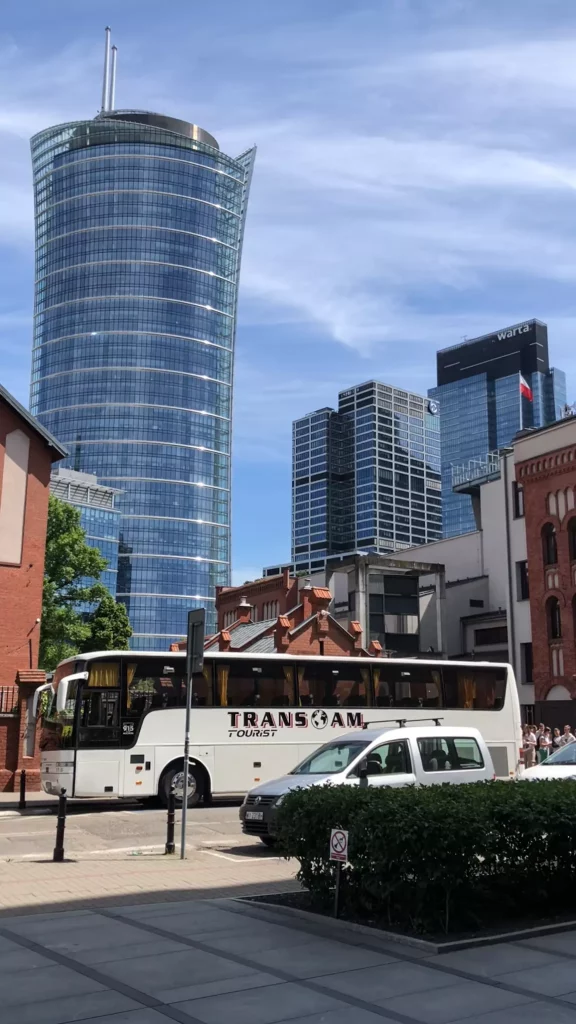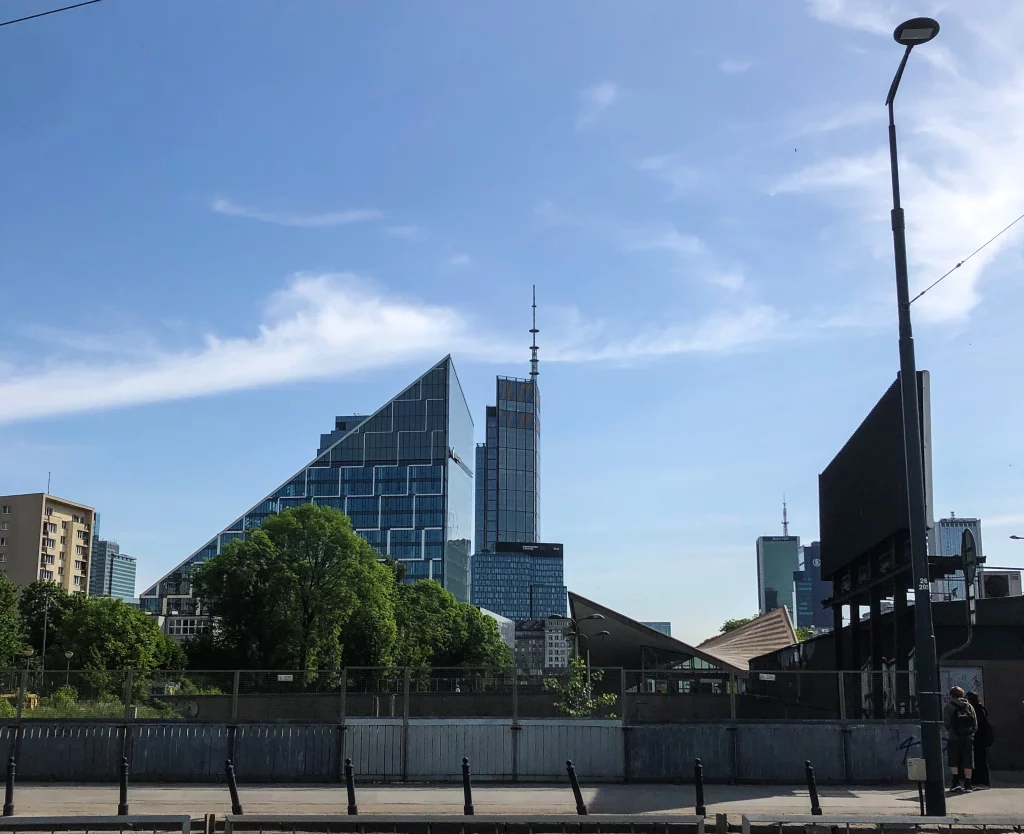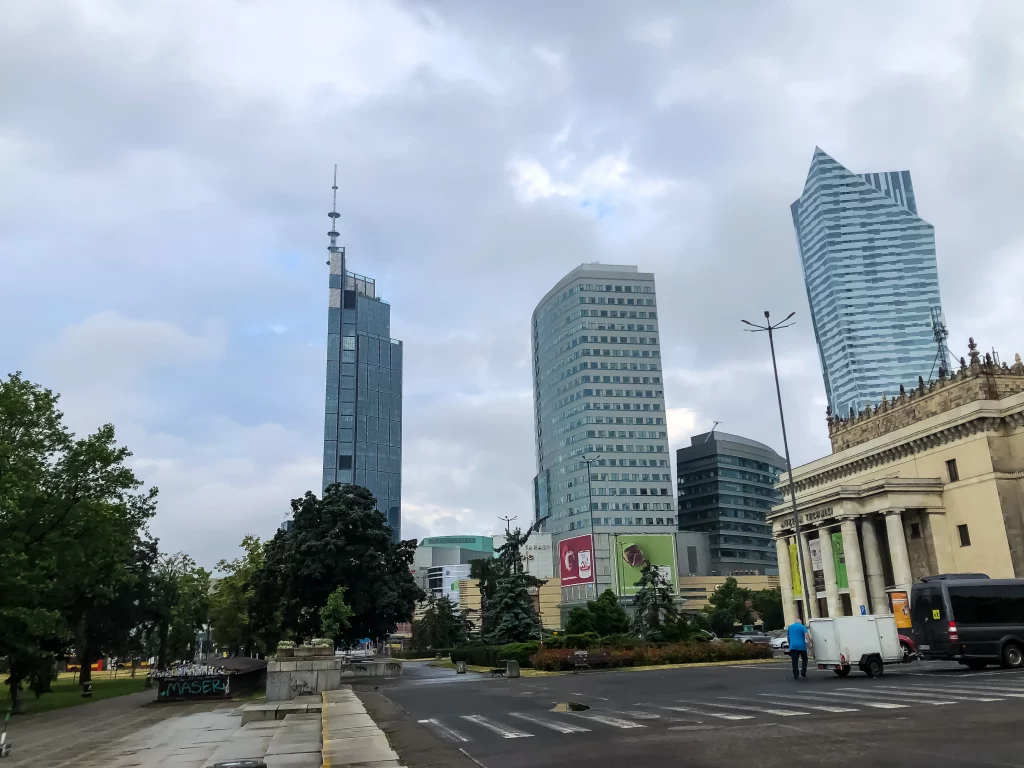Welcome to the enchanting capital of Poland – Warsaw! Nestled in the heart of Central Europe, this thriving metropolis is a melting pot of history, culture, and innovation. Whether you’re contemplating a move, planning a visit, or simply intrigued by this captivating city, our comprehensive guide will unveil the secrets of living in Warsaw. From its rich heritage to its vibrant nightlife, from its culinary delights to its green spaces, we’ll paint a vivid picture of what it truly means to call Warsaw home. So, grab your curiosity, pack your sense of adventure, and let’s embark on an unforgettable journey through the wonders of living in Warsaw.
Warsaw: The Capital City and Cultural Hub
With its illustrious history, vibrant cultural scene, and dynamic atmosphere, Warsaw stands as the thriving heart of Poland. As the capital city, it serves as a symbol of resilience, having overcome the ravages of war and emerged stronger than ever. Warsaw encapsulates the nation’s spirit, blending a rich tapestry of tradition, modernity, and artistic expression. Nestled along the picturesque banks of the Vistula River, this cosmopolitan metropolis offers a wealth of experiences for those seeking a remarkable place to call home.
Moreover, Warsaw’s rapid growth has transformed it into a hub of career and business opportunities. The city’s dynamic economy attracts both local and international enterprises, creating a favorable environment for professional development. The Warsaw Stock Exchange, one of the largest in Central Europe, serves as a testament to the city’s position as a thriving financial center. In addition, Warsaw boasts a robust startup ecosystem, nurturing innovation and entrepreneurship. The city’s ever-expanding infrastructure and investment-friendly policies make it an attractive destination for ambitious professionals and aspiring entrepreneurs.
One of the remarkable aspects of Warsaw is its warm embrace of foreigners. The city’s cosmopolitan nature and welcoming attitude create an inclusive environment for individuals from diverse backgrounds. Warsaw’s multiculturalism is reflected in its international community, which contributes to its cultural richness and offers a unique opportunity for cross-cultural exchange. With English widely spoken and an array of international events, expatriates find it easy to integrate into the fabric of Warsaw’s society.
Can You Live in Warsaw without Knowing Polish?
Introduction: As a thriving capital city with a rich historical and cultural heritage, Warsaw has become an attractive destination for foreigners seeking professional opportunities, vibrant city life, and a taste of Poland’s unique charm. However, for those considering a move to Warsaw, one question often arises: Can you live in Warsaw without knowing Polish? In this article, we will delve into this inquiry and explore the biggest challenges faced by foreigners living in Warsaw. Additionally, we will uncover some of the most notable cultural differences that may initially come as a shock to newcomers.
- Language Barriers: While Polish is the official language of Warsaw, the city has witnessed significant growth in its international community in recent years. This expansion has resulted in an increasing number of English-speaking services, making it possible to navigate daily life without knowing Polish. Many expats find that English proficiency is relatively high among younger generations, particularly in areas such as the central business district, popular neighborhoods, and international companies. Basic English communication is often sufficient in restaurants, cafes, and shopping centers. However, some administrative tasks and interactions with older locals may require Polish proficiency or the assistance of a translator. Therefore, while living in Warsaw without knowing Polish is feasible, learning the language can greatly enhance one’s experience and foster deeper connections with the local community.
- Administrative Processes: One of the challenges faced by foreigners in Warsaw relates to administrative procedures. These may include acquiring legal documents, setting up utilities, or dealing with bureaucratic matters. Navigating these processes can be complex, especially without a grasp of the Polish language. Engaging professional assistance or seeking guidance from expat communities and online resources can prove invaluable in overcoming these hurdles. Finding paid help should not be a problem, as there are many companies in Warsaw that provide services and assistance to non-Polish-speaking foreigners (such as Justay).
- Cultural Differences: Despite the warm and welcoming nature of Warsaw’s residents, there are some cultural differences that newcomers may find surprising or even shocking at first. One of the most notable distinctions is the directness and straightforwardness of communication. Poles tend to value honesty and directness in their interactions, which can sometimes be perceived as brusque or lacking politeness by those accustomed to more indirect communication styles. It is important to understand that this is a cultural trait and not a personal affront.
Another aspect that may require adjustment is the emphasis on punctuality. Poles generally value punctuality and expect others to do the same. Arriving late for appointments or social gatherings without prior notice may be viewed as disrespectful or inconsiderate. It is advisable to make an effort to be on time and communicate promptly if there are any delays or changes in plans.
Moreover, Warsaw has its unique customs and traditions that may differ from what newcomers are accustomed to. These include holiday celebrations, culinary traditions, and social norms. Embracing these cultural aspects can lead to a deeper appreciation and integration into the local community.
Cost of Living in Warsaw
Breakdown of Housing Costs
When considering the cost of living in Warsaw, one of the primary factors to consider is housing. Warsaw offers a diverse range of neighborhoods, each with its own unique character and varying rental prices. Here is a breakdown of average rental prices in different neighborhoods:
- Śródmieście: Located in the city center, Śródmieście offers a vibrant and bustling environment. Rental prices in this area are typically higher, with average rates ranging from 4,000 to 7,000 PLN per month for a one-bedroom apartment.
- Mokotów: Situated in the south-central part of Warsaw, Mokotów is known for its green spaces and tranquil atmosphere. Rental prices here generally range from 3,000 to 5,000 PLN per month for a one-bedroom apartment.
- Praga-Północ: Situated on the eastern bank of the Vistula River, Praga-Północ is an up-and-coming neighborhood with a rich cultural heritage. Rental prices in this area are relatively more affordable, with average rates ranging from 2,500 to 4,000 PLN per month for a one-bedroom apartment.
- Ursynów: Located in the southern part of Warsaw, Ursynów is a popular residential district with a suburban feel. Rental prices in Ursynów range from 2,500 to 4,000 PLN per month for a one-bedroom apartment.
Cost of Groceries, Dining Out, Transportation, and Utilities
Apart from housing, it is essential to consider other daily expenses when evaluating the cost of living in Warsaw. Here is an overview of the costs of groceries, dining out, transportation, and utilities:
- Groceries: The cost of groceries in Warsaw is generally affordable. On average, a monthly grocery bill for a single person can range from 600 to 900 PLN, depending on personal preferences and dietary choices.
- Dining Out: Warsaw offers a vibrant culinary scene with various dining options to suit every taste and budget. Eating out at mid-range restaurants can cost around 50 to 90 PLN per person for a three-course meal. Fast food or street food options are available at lower price points, typically ranging from 15 to 25 PLN per meal.
- Transportation: Warsaw has a well-developed public transportation system that includes buses, trams, and an underground metro. The cost of a single-ride ticket is approximately 4.40 PLN, while a monthly pass for unlimited travel within the city can be obtained for around 110 PLN.
- Utilities: The cost of utilities, including electricity, heating, water, and garbage services, can vary depending on the size of the apartment and individual consumption. On average, monthly utility bills for a small apartment can range from 200 to 400 PLN.
Comparisons to Other Major Cities in Europe
To provide readers with valuable context, it is helpful to compare the cost of living in Warsaw to other major cities in Europe. Warsaw generally offers a more affordable cost of living compared to many Western European cities. For example, rental prices in Warsaw are considerably lower than in cities like London, Paris, or Berlin. Similarly, grocery expenses, dining out, and transportation costs in Warsaw are often more budget-friendly compared to these major European cities.
However, it is important to note that while Warsaw offers a relatively lower cost of living, the city has been experiencing steady growth and development, which may lead to increased expenses in the future. Nonetheless, Warsaw remains an attractive destination for professionals seeking a high quality of life at a reasonable cost.
In conclusion, Warsaw presents a favorable cost of living with a range of housing options and affordable daily expenses. When compared to other major cities in Europe, Warsaw offers an enticing combination of affordability and quality of life.
Neighborhoods in Warsaw
When it comes to choosing the perfect neighborhood in Warsaw, several areas stand out for their unique characteristics and vibrant atmosphere. Three of the most popular neighborhoods in the city are Śródmieście, Praga, and Mokotów.
- Śródmieście: Śródmieście, meaning “city center” in Polish, is the heart of Warsaw and embodies the spirit of the capital. This bustling neighborhood offers a blend of historic charm and modern development. With its iconic landmarks such as the Royal Castle and the Palace of Culture and Science, Śródmieście is rich in cultural heritage.
Safety in Śródmieście is generally high, thanks to a well-established police presence and a vibrant community. Accessibility is excellent, with an extensive public transportation network connecting the neighborhood to other parts of the city. Additionally, Śródmieście boasts numerous green spaces, including the picturesque Saski Garden and the sprawling Łazienki Park, providing residents and visitors with tranquil retreats amidst the urban landscape.
- Praga: Praga, located on the east bank of the Vistula River, offers a distinctive alternative to the more traditional city center. This neighborhood has undergone significant revitalization in recent years, resulting in a thriving artistic and cultural scene. Praga is known for its bohemian atmosphere, with its historic buildings and street art adding to its unique charm.
While Praga’s reputation for safety has improved over time, it is advisable to exercise normal precautions. Accessibility to Praga is convenient, with bridges connecting it to the city center, and public transportation options readily available. The neighborhood also offers various green spaces, including the spacious Skaryszewski Park, where locals can enjoy outdoor activities and relax.
- Mokotów: Mokotów, situated to the south of Śródmieście, is a sought-after residential area known for its leafy streets and tranquil ambiance. This neighborhood strikes a balance between urban conveniences and a residential feel. Mokotów is characterized by its elegant architecture, ranging from interwar villas to modern apartment complexes.
Safety in Mokotów is generally regarded as high, contributing to its appeal among families and professionals. Accessibility is excellent, with well-connected public transportation options, making commuting convenient. Mokotów boasts several green spaces, such as Pole Mokotowskie Park and Park Dreszera, which offer ample opportunities for outdoor activities, jogging, and picnicking.
Lifestyle and Atmosphere
- Śródmieście: With its vibrant cityscape, Śródmieście offers a cosmopolitan lifestyle. The neighborhood is a hub of business, commerce, and entertainment, with an abundance of shops, restaurants, and cultural venues. Its central location makes it particularly attractive to professionals, students, and those seeking an active urban lifestyle.
- Praga: Praga appeals to artists, creatives, and individuals seeking an alternative and edgier atmosphere. The neighborhood is home to numerous art galleries, independent boutiques, and trendy cafes. Praga’s cultural diversity and vibrant nightlife scene make it an exciting place to live for those who value artistic expression and a more unconventional lifestyle.
- Mokotów: Mokotów offers a more tranquil and family-friendly environment compared to the bustling city center. The neighborhood exudes a sense of community, with well-established schools, parks, and recreational facilities. Mokotów attracts residents who appreciate a peaceful and green setting while still enjoying easy access to urban amenities.
A well-known piece of Warsaw is the Old Town. Its architecture dates mainly from the 17th and 18th centuries, although it was almost completely destroyed during World War II, everything has been rebuilt exactly as it was before the war.
The Old Town of Warsaw
Transportation and Infrastructure
The Public Transportation System in Warsaw
Warsaw boasts a comprehensive and efficient public transportation system, catering to the needs of its residents and visitors alike. The city’s public transportation network comprises buses, trams, and an extensive metro system, all of which contribute to seamless connectivity across the urban landscape.
Buses in Warsaw are a popular mode of transportation, offering extensive coverage throughout the city. With an extensive network of routes, buses provide reliable and frequent service, ensuring convenient access to various neighborhoods, landmarks, and business districts. The vehicles are equipped with modern amenities, such as air conditioning and accessibility features, to ensure a comfortable journey for all passengers.
Trams are another integral part of Warsaw’s public transportation system. Renowned for their iconic presence in the city, trams offer a scenic and reliable mode of travel. Operating on dedicated tracks, trams provide a smooth and efficient means of transportation, particularly in the city center. They connect key locations, including major train stations, cultural attractions, and residential areas, contributing to Warsaw’s overall accessibility.
Complementing the bus and tram systems, Warsaw’s metro network offers a rapid transit solution for commuters. The metro consists of two lines, Line M1 and Line M2, which intersect at several key stations. The metro system provides fast and reliable transportation, reducing travel times and congestion on the city’s roads. Stations are conveniently located throughout Warsaw, connecting various parts of the city and enabling easy transfers between different modes of public transportation.
Availability and Affordability of Taxis and Ride-Sharing Services
In addition to the public transportation options, Warsaw offers a range of taxi and ride-sharing services to cater to individual travel needs. Taxis are readily available throughout the city, with designated taxi stands at prominent locations such as airports, train stations, and major thoroughfares. Taxis in Warsaw are generally reliable, safe, and equipped with meters to ensure transparency in fare calculation. The city also embraces ride-sharing services, which provide an alternative and often more cost-effective option for transportation. Popular ride-sharing platforms are widely used, offering convenient booking options and competitive pricing.
Bike-Friendly Infrastructure and Options for Cycling Enthusiasts
For cycling enthusiasts, Warsaw provides an expanding network of bike-friendly infrastructure, promoting environmentally friendly and healthy modes of transportation. The city has implemented an extensive system of bike lanes and paths, ensuring the safety and convenience of cyclists. These dedicated routes are integrated into the urban fabric, connecting major roads, parks, and recreational areas. Additionally, Warsaw offers bike-sharing services, allowing individuals to rent bicycles for short-term use. With multiple docking stations located throughout the city, residents and visitors can easily access and enjoy the benefits of cycling in Warsaw.
In summary, Warsaw’s transportation and infrastructure exhibit a commendable commitment to efficient and sustainable mobility. The city’s public transportation system, encompassing buses, trams, and the metro, provides extensive coverage and reliable services. Taxis and ride-sharing services offer convenient alternatives for individual travel needs, while the bike-friendly infrastructure and bike-sharing options cater to cycling enthusiasts. Whether navigating the city for business or leisure, Warsaw’s transportation ecosystem ensures a seamless and enjoyable experience for all.
Employment Opportunities
Warsaw offers a wide range of employment opportunities across various industries. Among the thriving sectors, finance, information technology (IT), and business services stand out as key drivers of the city’s economic growth.
In the finance industry, Warsaw boasts a robust banking sector and is home to numerous multinational financial institutions. These institutions provide a wealth of employment options for professionals with expertise in areas such as investment banking, corporate finance, risk management, and asset management. The city’s position as a financial hub in Central and Eastern Europe continues to attract top talent and create exciting career prospects.
The IT sector in Warsaw is rapidly expanding, propelled by a strong pool of skilled professionals and a supportive ecosystem. The city has seen significant growth in software development, cybersecurity, data analytics, and emerging technologies such as artificial intelligence and blockchain. Multinational companies, startups, and research institutions in Warsaw are actively seeking IT professionals to drive innovation and technological advancement.
The business services sector, including shared services centers and outsourcing companies, also offers abundant employment opportunities. Warsaw has become an attractive destination for international corporations looking to establish their operations in Central Europe, resulting in a high demand for professionals skilled in areas such as finance and accounting, human resources, customer service, and project management.
Prospects for expatriates and the availability of English-speaking jobs.
For expatriates seeking employment in Warsaw, the city presents a welcoming and inclusive environment. English proficiency is widespread, and many companies have adopted English as their primary language of communication, particularly in multinational organizations. This linguistic advantage creates ample opportunities for English-speaking professionals to thrive in Warsaw’s job market.
International companies and organizations often have their regional headquarters or branches in Warsaw, attracting a diverse pool of talent from around the world. Expatriates with specialized skills and global experience can find rewarding careers in various sectors, collaborating with international teams and contributing to the city’s cosmopolitan work culture.
Furthermore, Warsaw offers a supportive infrastructure for expatriates, including reliable transportation, modern housing options, and a vibrant social scene. The city’s international schools and educational institutions cater to the needs of expatriate families, ensuring a smooth transition for those relocating with their loved ones.
University of Technology in Warsaw.
John Paul II Avenue in the center of Warsaw
The Warsaw Spire skyscraper and the Warsaw Uprising Museum underneath.
Resources and tips for job seekers in Warsaw
Job seekers in Warsaw can take advantage of several resources and strategies to enhance their employment prospects:
- Professional Networking: Building a strong professional network is crucial in Warsaw’s job market. Attend industry events, join relevant associations, and engage in online platforms to connect with professionals in your field.
- Online Job Portals: Utilize popular job portals such as LinkedIn, Pracuj.pl (one of the biggest job portal in Poland), Aplikuj.pl, and Indeed to explore job opportunities in Warsaw. These platforms offer a wide range of positions across various industries.
- Company Websites: Visit the websites of companies you are interested in and regularly check their career pages for job postings. Many organizations prefer direct applications through their websites.
- Polish Language Skills: While English proficiency is prevalent, learning basic Polish can significantly enhance your job prospects and integration into the local culture. Consider enrolling in language courses or using online resources to improve your language skills.
- Professional Development: Continuously invest in your professional development by attending workshops, webinars, and training programs. Demonstrating a commitment to ongoing learning can set you apart from other candidates.
- Recruitment Agencies: Collaborate with reputable recruitment agencies that specialize in your field of expertise. These agencies have extensive knowledge of the local job market and can assist you in finding suitable employment opportunities.
Remember, patience and persistence are essential when searching for employment. It is advisable to tailor your application materials to each position, emphasizing your relevant skills and experiences.
Education and Healthcare
Education System in Warsaw Warsaw boasts a robust and diverse education system that caters to both local residents and the international community. The city is home to a range of educational institutions, including esteemed international schools and renowned universities.
International Schools: Warsaw prides itself on providing top-notch international education options for expatriate families. These international schools follow globally recognized curricula, such as the International Baccalaureate (IB) or British or American educational frameworks. With highly qualified faculty members and state-of-the-art facilities, these schools offer an excellent learning environment that nurtures intellectual growth and fosters cultural understanding.
Universities: Warsaw’s higher education landscape is marked by several prestigious universities that offer a wide array of academic disciplines. Renowned institutions such as the University of Warsaw and Warsaw University of Technology are internationally recognized for their research excellence and quality of education. These universities attract students from around the world, providing a cosmopolitan environment conducive to intellectual stimulation and collaboration.
Healthcare Facilities in Warsaw Warsaw boasts a well-developed healthcare system that combines both public and private facilities. The city offers a comprehensive range of medical services, ensuring access to quality healthcare for its residents and visitors.
Public Healthcare: The public healthcare system in Warsaw is overseen by the National Health Fund (NFZ), which provides medical coverage to Polish citizens and legal residents. Public hospitals and clinics in the city are equipped with modern infrastructure and staffed by highly skilled medical professionals. While the public healthcare system is generally efficient and provides a satisfactory level of care, waiting times for non-urgent treatments may vary.
Private Healthcare: Warsaw also offers an extensive network of private healthcare facilities that cater to individuals seeking more personalized and expedited medical services. Private hospitals and clinics in the city are known for their state-of-the-art equipment, specialized medical expertise, and shorter waiting times. Many private healthcare providers in Warsaw maintain international accreditation, ensuring compliance with global standards of care.
Quality of Healthcare: Warsaw’s healthcare system upholds high standards of medical practice and is continuously evolving to meet the growing demands of the city’s population. Medical professionals in Warsaw are well-trained and often hold international certifications, ensuring that patients receive quality care. The city is at the forefront of medical advancements, with healthcare providers adopting cutting-edge technologies and innovative treatment methods.
International Clinics and Hospitals for Expatriates To cater to the needs of expatriates and international residents, Warsaw houses a selection of international clinics and hospitals. These facilities specialize in providing medical care to non-Polish speaking patients, ensuring seamless communication and cultural sensitivity.
International clinics and hospitals in Warsaw offer a range of services, including general medical care, specialized treatments, and emergency services. They employ multilingual staff who are well-versed in providing healthcare support to expatriates, ensuring that language barriers are overcome and patients receive the attention they require.
These international healthcare facilities often collaborate with renowned medical institutions from around the world, allowing for the exchange of knowledge and expertise. Such partnerships further enhance the level of care available to expatriates in Warsaw, providing a reassuring and familiar healthcare environment.
Leisure and Recreation in Warsaw
Warsaw offers a plethora of diverse entertainment options that cater to every taste and preference. Renowned for its thriving culinary scene, the city boasts an impressive array of restaurants that showcase both traditional Polish cuisine and an eclectic fusion of international flavors. From elegant fine dining establishments to cozy and trendy cafes, Warsaw’s culinary landscape is a true delight for food enthusiasts seeking a memorable gastronomic experience.
When the sun sets, Warsaw comes alive with its bustling nightlife, offering an exhilarating atmosphere for night owls. The city boasts a wide range of bars, clubs, and music venues, each with its unique charm and character. Whether you prefer a sophisticated cocktail lounge, a pulsating dance club, or an intimate jazz bar, Warsaw’s nightlife scene is sure to leave you captivated and craving for more.
Nature enthusiasts and outdoor enthusiasts will find themselves spoilt for choice with Warsaw’s abundance of parks, gardens, and recreational areas. Łazienki Park, a breathtaking oasis in the heart of the city, features stunning landscapes, meticulously manicured gardens, and a serene lake, providing an idyllic setting for leisurely strolls or peaceful picnics. The expansive Saxon Garden, with its historic charm and elegant design, offers a tranquil escape from the urban hustle and bustle.
For those seeking more active pursuits, Warsaw offers a wealth of opportunities for outdoor activities. The Vistula River, flowing majestically through the city, provides a picturesque backdrop for kayaking, boating, or simply enjoying a leisurely bike ride along its scenic riverside paths. In addition, Warsaw’s numerous green spaces and parks, such as Park Skaryszewski and Park Morskie Oko, offer ample space for jogging, yoga sessions, or family-friendly recreational activities.
By the Vistula River in downtown Warsaw you will also find many bars and restaurants with tasty food and drinks. This is one of the favorite ways for Varsovians to spend a sunny day – eating delicious food, listening to music and chatting with friends while having a beautiful panorama of the Vistula River in front of you. Many parties and events also take place there.
Warsaw embraces its cultural heritage with a vibrant calendar of events, festivals, and sports activities throughout the year. The Warsaw Summer Jazz Days, one of the most significant jazz festivals in Europe, attracts renowned musicians from around the globe, captivating audiences with soul-stirring performances. The Warsaw Film Festival, a highly esteemed cinematic celebration, showcases the best of international and Polish cinema, offering an immersive experience for film aficionados.
Additionally, sports enthusiasts can indulge in the city’s fervor for sporting events. The Warsaw Marathon, drawing participants from all corners of the world, transforms the city into a hub of athletic prowess and determination. Football fans can also rejoice as Warsaw is home to several prominent football clubs, igniting a passion that reverberates through the city during match days.
An interesting fact about Warsaw is that it is home to the tallest skyscraper in the European Union – Varso. It is 1,017 ft / 310 m high. You can see it on the image below.
Varso – the first one on the left.
Expat Community and Integration in Warsaw
Warsaw, the vibrant capital of Poland, has emerged as a flourishing hub for international professionals seeking new opportunities and cultural experiences. As an expert deeply familiar with the city’s dynamics, I will delve into the presence of expat communities in Warsaw and shed light on their integration into the local society. Furthermore, I will outline the social clubs, language exchange programs, and support networks available to expatriates, and conclude with valuable tips and advice for successfully adjusting to life in Warsaw while forging connections with the locals.
Expatriate Communities in Warsaw
Warsaw proudly embraces a diverse and thriving expat community. With a host of multinational corporations and an expanding job market, professionals from various backgrounds have found a welcoming home here. The city’s cosmopolitan character, coupled with its rich history and cultural heritage, contributes to an environment conducive to integration and cross-cultural understanding.
The expat community in Warsaw is characterized by its inclusivity and unity, creating a supportive atmosphere for newcomers. Numerous organizations, both formal and informal, strive to connect expatriates with each other and facilitate their integration into the local society.
Support Networks and Language Exchange Programs
Social Clubs: Warsaw hosts a plethora of social clubs catering to the interests and hobbies of expatriates. These clubs serve as meeting points for individuals with shared passions, providing a platform to forge connections and exchange experiences. Whether it be sports clubs, art and culture societies, or professional networks, these vibrant communities offer a sense of belonging and foster personal growth.
Language Exchange Programs: Warsaw boasts a range of language exchange programs designed to enhance linguistic skills while promoting intercultural dialogue. These programs facilitate the exchange of languages between expatriates and locals, creating opportunities for meaningful interactions and cultural immersion. By participating in language exchanges, expats can develop proficiency in Polish while establishing lasting friendships with native speakers.
Support Networks: Warsaw’s expat support networks are invaluable resources for individuals navigating their way through a new environment. These networks provide guidance on practical matters such as housing, healthcare, and legalities, helping expatriates smoothly transition into their new lives. In addition, they offer a platform for socializing, organizing events, and accessing local knowledge, ensuring that no expat feels isolated or overwhelmed.
Adjusting to Life in Warsaw – Insights and Recommendations
To facilitate a seamless adjustment to life in Warsaw, expatriates can employ several strategies to connect with locals and embrace the city’s unique charm:
Language Learning: While English is widely spoken, acquiring basic Polish language skills can significantly enhance interactions with locals and demonstrate a genuine interest in their culture. Participating in language courses or language exchange programs mentioned earlier can aid in this endeavor. You can also find many Polish language learning schools in Warsaw, one of the more well-known ones is Lingua Polonica.
Cultural Immersion: Embrace the rich cultural tapestry of Warsaw by attending local events, festivals, and exhibitions. Exploring the city’s historical landmarks, museums, and theaters not only enriches one’s understanding of Polish heritage but also provides opportunities to engage with fellow residents.
Networking: Actively seek out networking events and professional gatherings to establish connections within the local business community. Attend industry-specific conferences, seminars, or join relevant professional organizations. By building a strong professional network, expatriates can foster career growth and gain valuable insights into Warsaw’s professional landscape.
Volunteer Opportunities: Engaging in community service through volunteering enables expatriates to make a positive impact on society while forging connections with like-minded individuals. Numerous charitable organizations and initiatives welcome volunteers, allowing expats to contribute their skills and expertise to meaningful causes.
Warsaw: A Tapestry of History and Culture
Nestled in the heart of Poland, Warsaw stands as a testament to resilience, regeneration, and a captivating blend of history and culture. From its remarkable reconstruction after the devastation of World War II to its thriving artistic and cultural scene, this vibrant city offers an enriching experience that reflects the unique tapestry of traditional Polish heritage and contemporary influences.
Warsaw’s history stretches back centuries, bearing witness to both triumphs and tragedies. One of the most remarkable chapters in its narrative is the reconstruction following the destruction wrought by World War II. Rising from the ashes, the city painstakingly rebuilt its iconic landmarks, preserving their architectural splendor and historical significance. Visitors can witness the awe-inspiring resilience of the Warsaw Old Town, meticulously reconstructed to reflect its former glory and recognized as a UNESCO World Heritage site. Each cobblestone and façade stands as a testament to the indomitable spirit of the Polish people.
Warsaw’s cultural landscape is a treasure trove of artistic expression, boasting an array of museums, theaters, and a thriving music scene. Immerse yourself in the history of Poland at the Warsaw Uprising Museum, where interactive exhibits narrate the heroic struggle for independence. The National Museum houses an extensive collection of Polish art spanning centuries, offering a glimpse into the nation’s creative legacy.
For theater enthusiasts, Warsaw’s stages offer captivating performances, ranging from classical theater to avant-garde productions. The Polish National Opera, renowned for its world-class productions, showcases the timeless beauty of opera and ballet. Additionally, the vibrant music scene features everything from classical symphonies to contemporary jazz clubs, making Warsaw a hub for diverse musical experiences.
Warsaw seamlessly weaves together traditional Polish culture with modern influences, creating a dynamic cityscape that captivates visitors. On one hand, the city honors its rich traditions through festivals, such as the colorful Easter processions or the vibrant Chopin Concerts held in Łazienki Park during the summer. Polish cuisine, with its hearty dishes and flavorsome delicacies, takes center stage in Warsaw’s many traditional restaurants, offering a delectable journey into the country’s culinary heritage.
Simultaneously, Warsaw embraces contemporary trends and innovations, manifesting in its modern art galleries, fashion boutiques, and lively nightlife. The city’s vibrant street art scene, characterized by vibrant murals and thought-provoking installations, adds a modern twist to its urban landscape. The district of Praga, once a gritty industrial area, has transformed into a creative hub, attracting artists, designers, and entrepreneurs.
Read also: Top 100 Essential Travel Items
The Most Popular on BitGlint

30 Nature Worship Examples & Meaning
Nature has always mattered to people. Long before modern religions, people looked to the sky, the land, and the...

Top 30 Synergy Examples in Different Fields & Definition
Synergy represents one of the most powerful concepts across numerous fields - from business and science to...

30 Doubt Examples & Meaning
Everyone experiences doubt. It can show up in small everyday choices or big life decisions. Sometimes it’s a quiet...

40 Emotional Value Examples & Meaning
Why do some messages stick — while others are forgotten? Why do people choose one brand over another, even when the...

100 Temporary Things Examples & Meaning
What does it mean when something is temporary? We use the word often, but many people don’t stop to think about it. In...

100 Things That Are Short
Not everything in life is big or long-lasting. Some things are small. Some things pass quickly. People notice short...

100+ Things That Are Cold
Cold is something most people understand the moment they feel it. You step outside on a freezing morning. You grab a...
Get Inspired with BitGlint

